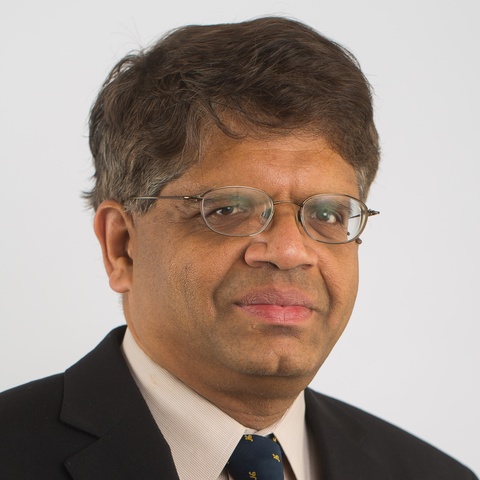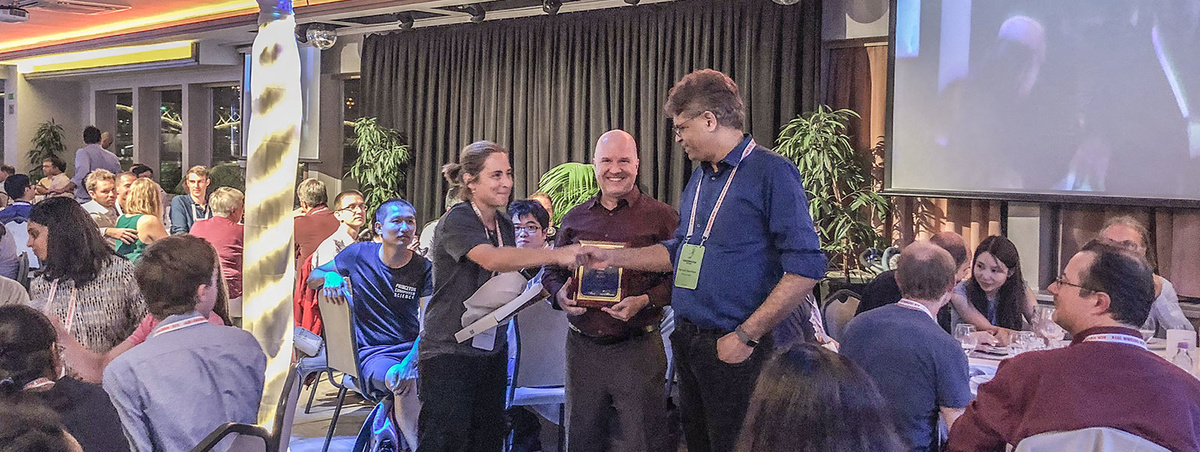Ramesh Sitaraman and Colleagues Receive the ACM SIGCOMM Networking Systems Award

UMass Amherst College of Information and Computer Sciences Professor Ramesh Sitaraman and Duke University Professor Bruce M. Maggs received the inaugural Association for Computing Machinery (ACM) SIGCOMM Networking Systems Award on behalf of the startup team of scientists and engineers who built the Akamai content delivery network (CDN), the world’s first major CDN, and pioneered the concept of internet content delivery.
The ACM SIGCOMM Networking Systems Award is given annually to “recognize the development of a networking system that has had a significant impact on the world of computer networking.” This year, ACM marked the major technical achievement of the creation of the Akamai CDN, one of the largest distributed networks ever built, currently consisting of 240,000 servers in 130 countries and serving about a quarter of all internet traffic.
 |
|
Bruce Maggs and Ramesh Sitaraman receive the ACM SIGCOMM Networking Systems Award on behalf of the startup team of scientists and engineers who built the Akamai content delivery network (CDN), the world’s first major CDN. |
According to Sitaraman, two decades after its creation, CDNs have completely transformed the Internet as we know it while simultaneously spawning a business sector valued at tens of billions of dollars. CDNs deliver a majority of Internet traffic today, including much of the world’s e-commerce, news, media, entertainment, social networks, and online applications.
“CDNs may be the most important technical breakthrough you have never heard of,” says Sitaraman. “That is because CDNs work unnoticed, under the covers of your browser, video player, or application. But, CDNs are what make your web pages load faster, make your videos play continuously without freezes, and enable billions of people around the world to watch a live soccer game on the Internet.”
CDNs accomplish these results using sophisticated algorithms that continuously monitor the state of the global Internet, balance server load, map users to the most proximal server, cache content requested by the user, and reliably transport content to billions of users.
“The future looks even more exciting since much foundational scientific research is needed to make the Internet much more secure and more sustainable than what it is today,” says Sitaraman. “CDNs are a good example of how academic research can fundamentally change the world.”
Professor Sitaraman helped build Akamai for years, leaving academia to translate his research into practice. He now directs the CICS Laboratory for Internet-Scale Distributed Systems (LIDS) and is a member of the Theoretical Computer Science group. His research involves all aspects of Internet-scale distributed systems, including algorithms, architectures, performance, and energy efficiency. He is currently focused on the next-generation Internet. Sitaraman is the recipient of a 2014 College Outstanding Teacher Award.
Congratulations to Ramesh and all of the award recipients!